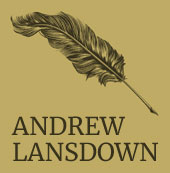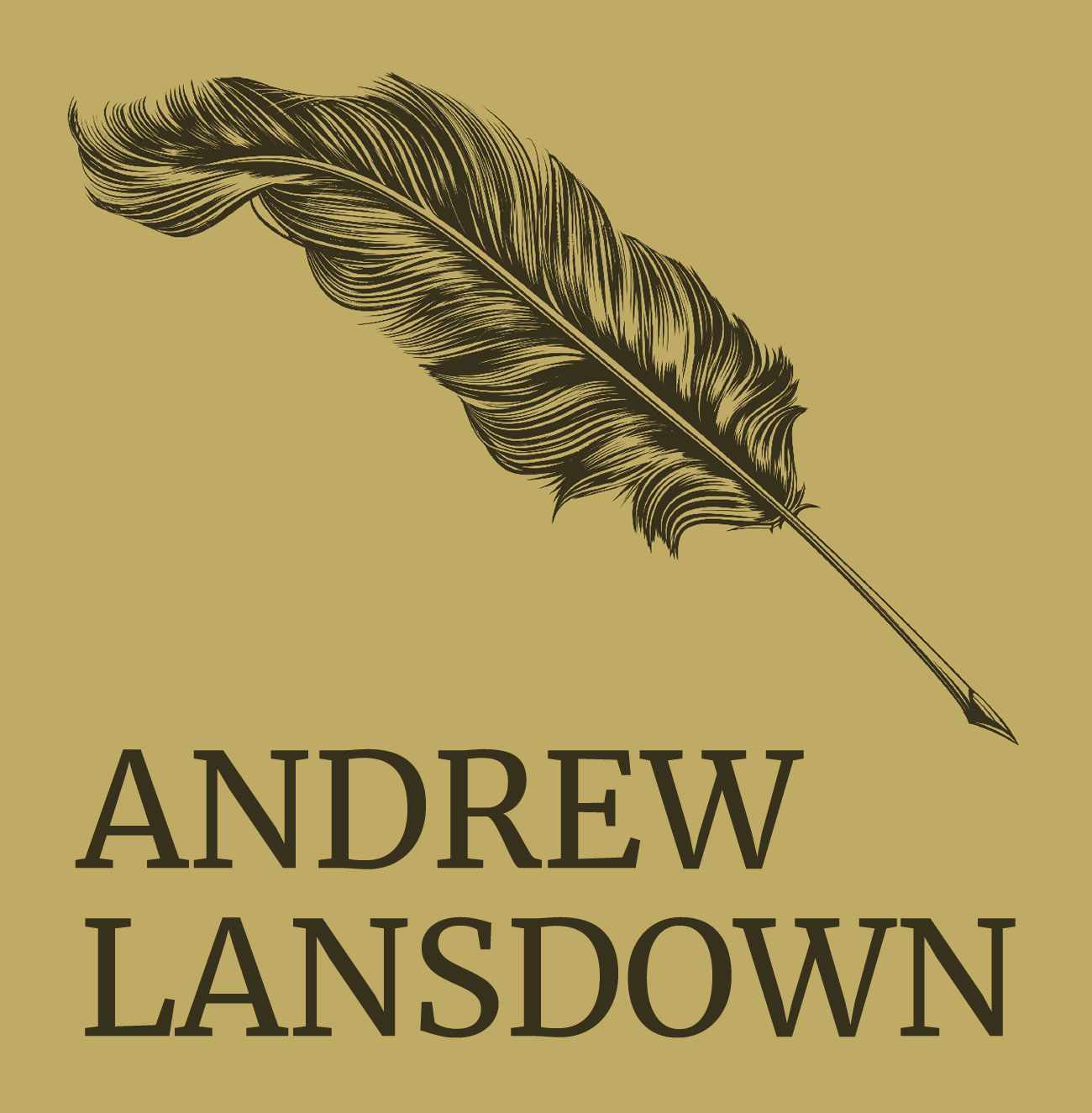Nine poems by Geoff Page
1. “The Kelpie’s Back”
2. “The Recipe”
3. “Letter to Toyota”
4. “Three Akubras”
5. “Le Mot Juste”
6. “Pieta”
7. “The Seamstress”
8. “The Sparrows at Brunetti’s”
9. “Collateral Damage”
See also biographical and bibliographical information further down this page.
Some of Geoff Page’s critiques from 80 Great Poems are posted on this website. Read them here:
T.S. Eliot, “Journey of the Magi” – www.andrewlansdown.com/other-poets-poems/ts-eliot/
Gerard Manley Hopkins, “Carrion Comfort” – www.andrewlansdown.com/other-poets-poems/gerard-manley-hopkins/
James McAuley, “Because” – www.andrewlansdown.com/other-poets-poems/james-mcauley/
William Carlos Williams, “This is Just to Say” – www.andrewlansdown.com/other-poets-poems/william-carlos-williams/
King David, “Psalm 23” – www.andrewlansdown.com/other-poets-poems/david-king-of-israel/
Les Murray, “The Mitchells” – www.andrewlansdown.com/other-poets-poems/les-murray/
The Kelpie’s Back
Of course it’s not allowed, you’re right,
poems about poetry, no,
but even so
it gets quite sad
turning through, say, Walter Murdoch’s
Book of Australasian Verse
(Oxford 1924)
and seeing them go under for
the third and final time.
‘The goal’s oblivion,’ Borges said.
But does it have to be so fast?
The great tradition shakes them off
like water from a kelpie’s back
bounding from a dam, each one ‘a classic
of our time’?
And who of you tonight has read
O’Reilly’s ‘proud immortal’ poem, ‘Stars’,
in which he sang an empire’s reaches
and eulogised ‘the blazing sun
of Shakespeare’s soul’? Women at
small cedar tables,
drovers lonely at a fire,
merchants waving fat cheroots,
clergymen by candlelight
are equally all underground
and helpless to sustain their poems
as one by one they slip from sight.
© Geoff Page
from Darker and Lighter
The Recipe
‘A sonnet tells me nothing but itself’,
as William Carlos Williams liked to say —
somewhat perversely lifting from the shelf
a pattern even free verse must obey.
Your sonnet’s eight and six are sacrosanct;
the greatest chef would hardly dare to alter
the ancient taste for eight lines neatly ranked —
then six from what Italians call the volta.
A rhyme scheme down the side is de rigueur,
Elizabethan maybe — or Petrarchan.
And cooks from Spenser on will all concur
the sonnet is the dish to make your mark in.
By God, we’re there and, yes, you’re doing fine.
And now, like pepper, add the fourteenth line.
© Geoff Page
from Darker and Lighter
Letter to Toyota
‘A poem is a small machine’
William Carlos Williams said.
The reverse, I’m sure, may too apply.
Your spry Toyota 1.3
is very much a kind of poem –
that choir of sixteen little valves
lined up like tetrameters
happy on their breath of petrol,
the torque that shows on long slow hills,
the way it parks on half of nothing
and breezes, effortless, all day
along a reach of freeway.
Your engineers are really poets.
I see them poised there in Japan
dreaming at their robots.
The only problem’s with the name
some Hollywood consultant gave you.
A Starlet smells of celluloid.
I’m calling mine the Haiku.
© Geoff Page
from Darker and Lighter
Three Akubras
Three Akubras in a row
my brothers underneath them
standing at the saleyards there
beside the auctioneer
a yard of vealers at the trot
the best there’s been all morning
level-backed and well filled out
still glossy from the clover.
The auctioneer who sings them up
is lyrical about the grasses;
the buyers quietly pull an ear
or raise an eye to spotters.
What is it that they smile at now,
three brothers in a row?
The wildness of the auctioneer?
The quietness of the buyers?
Or is it just the years gone by
since first they saw the difference?
Or simply at the way the bids
rose freely through the ceiling?
Or are they smiling there at me
across the yard without Akubra
bemused by what I might have been
without my long refusal:
the ache all morning in the saddle
the branding irons, the cutting knife
stockbooks with insects late at night
the seasons of the ledger?
More likely it’s the smile of three
who’ve kept it all together
the upstream and the downstream view
the tensions sensed and settled
as, suddenly, the hammer falls.
The vealers swirl out through the gate
away into the trucks and leave
the high tide of a market.
One smile under three Akubras …
and perched there on the other side
of both a saleyard and a life
I wear a certain hatless pride.
© Geoff Page
from The Secret
Le Mot Juste
What’s the word for how they move
these crows out picking on the highway
somewhere to the west of Eucla?
What’s the word for what they do
when the semi like a wayward cliff
is sweeping down upon them?
Saunter could be almost it.
‘They saunter sideways out of range
dishevelled by a wash of air …’
Or strut. They hardly ever need to flap —
unless their timing’s slightly out —
or two trucks almost intersect.
Flaunt might be a better word —
but that’s a bit anthropomorphic —
and flaunting what?
The oily dressage of their feathers?
The black so deep it’s just a glisten
fat from what the tyres have scattered?
Saunter, strut or flap or flaunt?
What’s the word you think you saw?
And which one now they’re in the mirror
(something) briskly back for more.
© Geoff Page
from The Secret
Pieta
Supported by her two remaining
she’s walking down the aisle
following the coffin
that bumps a little on six shoulders
uncertain of the water.
The two still left, a son and daughter,
by two short measures older
sustain her at the elbows
as though her knees may not quite find
the stiffness that she needs there.
The black she wears
is gathered satin, loosely hung
and from her neck is hanging also
according to her country’s style
a full-size head-and-shoulders
photo of the dead,
her smiling sixteen year old son,
swung there in his
metal frame
about the level of the womb
and ready for the future.
© Geoff Page
from The Secret
The Seamstress
The heart beats like a row of stitching,
accelerating when inclined
across a gap from dream to daylight.
The past’s a single heart-sewn line,
the future more a bolt of linen
unrolled in the darkened air.
Who knows how far the heart will take us?
Only the seamstress in her chair.
© Geoff Page
from The Secret
The Sparrows at Brunetti’s
The sparrows at Brunetti’s
define the word ‘alert’
perching on vacated chairs,
pesky, preened and pert.
The remnants they have cornered
have fine Italian names.
Before a blonde in black can swoop
they’ve measured out their claims.
Among spent cappuccinos
and empty latte glasses,
the sparrows’ feel for real estate
defeats the middle classes.
Each bird has long developed
a rich, pragmatic taste:
they recognise a crema — and
there’s nothing goes to waste.
As perky cognoscenti
they’ve found their final niche —
on Faraday with students and
a slice of nouveau riche.
The treble of their flutter
makes the day complete.
Edgy as the traffic, they’re
the caffeine in the street.
from Agnostic Skies
Collateral Damage
Collateral damage, generals say …
that summer when her parents split
and somehow she got lost between them
unwanted by the new recruits
bringing in their own;
Cinderella, just sixteen,
and sharing with a brother
the ATM and plastic magic
while dad is overseas;
her stripping it as quiet revenge,
the blow-in of the youthful drunks,
the advent of the pushers
as schoolwork now becomes a habit
running up her arm
and everything is loans and lies.
The boyfriend proves a user too.
She dabbles at the edge of sleaze
but lasts a few nights only;
does some running for the dealers
closer to the source,
inscrutables from Cabramatta
who’d never use a fit themselves
but chase the dragon only.
Every day she’s got to have it;
drains each parent, makes them pay
but cannot crack their
perfect circles;
her stories grow
each week more wild
but not unlike the truth —
AIDS syringes at the neck,
hostage in a car.
And always, somewhere, deeper down
the ache of her nostalgia:
those summers back before the split
when everything was high blue sky
and still no touch of difference on her
when siblings strolled up from the beach
hosed the sand from off their feet
and all sat down to lunch,
her father with a Tooheys open
her mother at the bench.
Six months, twelve,
maybe eighteen
she’s disappearing by degrees
into her own mythology,
the jobs that strangely fade away,
the dole that always goes to dealers,
her battles with the clerks.
But now, today, her father’s rung
to ask her to the beach for Christmas
and here tonight in this last house
to offer her some passing shelter
she’s saying like a happy child
Make sure you wake me up, OK?
My dad’ll be here right on nine.
Trying out a smile.
from Collateral Damage
Geoff Page, born 1940, is an Australian poet who has published eighteen collections of poetry as well as two novels, four verse novels and several other works including anthologies, translations and a biography of the jazz musician, Bernie McGann. He retired at the end of 2001 from being in charge of the English Department at Narrabundah College in the ACT, a position he had held since 1974. He has won several awards, including the ACT Poetry Award, the Grace Leven Prize, the Christopher Brennan Award, the Queensland Premier’s Prize for Poetry and the 2001 Patrick White Literary Award.
Selections from his work have been translated into Chinese, Hindi, German, Serbian, Slovenian and Greek. He has also read his work and talked on Australian poetry in Switzerland, Germany, Ireland, Norway, Sweden, Great Britain, Italy, Spain, Serbia, Slovenia, Slovakia, Czech Republic, Austria, Hungary, India, Singapore, China, Korea, the United States and New Zealand.
Literary works by Geoff Page
A Reader’s Guide to Contemporary Australian Poetry (UQP, 1995)
The Secret ((William Heinemann Australia, 1996)
Bernie McGann: A Life in Jazz (Kardoorair Press, 1997)
The Scarring (Hale & Iremonger, 1999)
Collateral Damage (Indigo, 1999)
Darker and Lighter (Five Islands Press, 2001)
My Mother’s God (Picaro Press, 2002)
Drumming on Water (Brandl & Schlesinger, 2003)
Cartes postales (Picaro Press, 2004)
Freehold (Brandl & Schlesinger, 2005)
Agnostic Skies (Five Islands Press, 2006)
Europe 101 (Picaro Press, 2006)
80 Great Poems from Chaucer to Now (UNSW Press, 2006)
Lawrie & Shirley: The Final Cadenza: A Movie in Verse (Pandanus Books, 2007)
Seriatim (Salt, 2007)
Bahn Dance (Picaro Press, 2007)
Long White Cloud & Indian Pixels (Picaro Press, 2008)
60 Classic Australian Poems (UNSW Press, 2009)
Coffee with Miles, CD (River Road Press, 2009)

